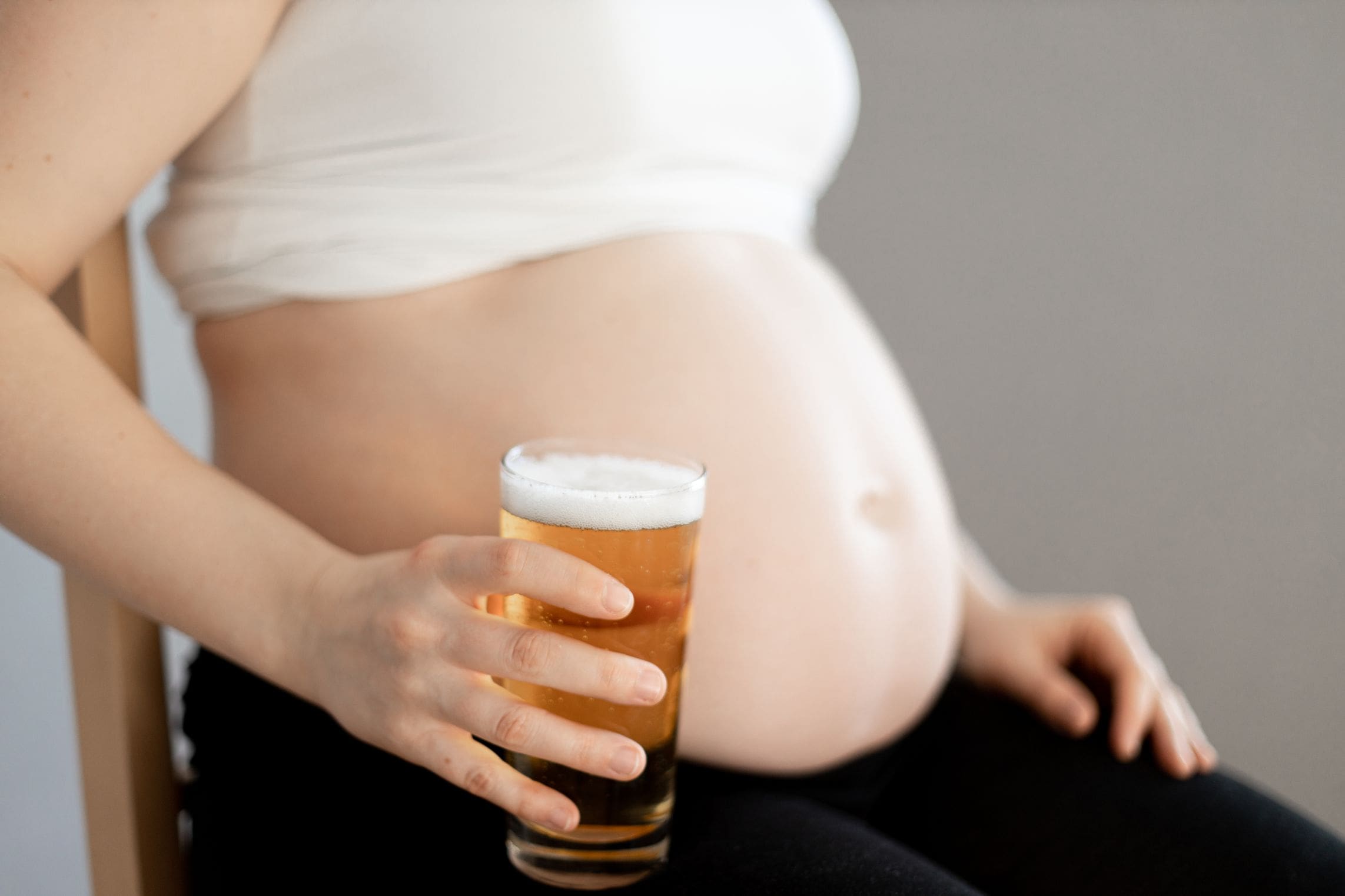Most pregnant women are concerned about the possible danger to their baby from any drugs or medicines they may take. But many do not know that alcohol intake during pregnancy is associated with a number of problems, and is regarded as the most common preventable cause of birth defects and brain damage in children.
Fetal alcohol spectrum disorder (FASD)
The term fetal alcohol spectrum disorder (FASD) is used to describe a range of disabilities and health problems associated with exposure to alcohol before birth. These include fetal alcohol syndrome (FAS), alcohol-related neurodevelopmental disorders and alcohol-related birth defects.
Fetal alcohol syndrome
Fetal alcohol syndrome is at the severe end of the FASD spectrum and can affect children exposed to high levels of alcohol during pregnancy. Features of fetal alcohol syndrome include:
- small size at birth;
- slow growth after birth;
- abnormalities in the appearance of the face and other birth defects; and
- abnormal structure and function of the brain.
Children with fetal alcohol syndrome can have significant developmental and behavioural problems, learning difficulties and problems with memory and communication.
Alcohol-related neurodevelopmental disorders
Children with alcohol-related neurodevelopmental disorders do not have birth defects, but can have significant developmental and behavioural problems and intellectual disabilities similar to those with fetal alcohol syndrome.
Alcohol-related birth defects
Alcohol-related birth defects can include problems with the heart, kidneys, bones or hearing.
People with FASD often have lifelong problems and special needs, including disrupted education, increased rates of mental illness and drug and alcohol problems, and trouble with the law. However, early diagnosis and appropriate interventions (such as behavioural and education therapy) can help to vastly improve the lives of affected people.
Is any amount of alcohol safe during pregnancy?
No safe limit of drinking during pregnancy has been established. The risk of birth defects is greatest with high, frequent alcohol intake during the first trimester of pregnancy. However, drinking at any stage of pregnancy can have consequences for the development of the baby’s brain. Binge drinking is especially harmful.
Don’t panic if you have been drinking small amounts of alcohol during pregnancy or drank before realising you were pregnant. The risks from low-level drinking (such as one or 2 standard drinks per week) during pregnancy are likely to be low.
However, the safest approach for women who are pregnant or planning a pregnancy is to not drink. Stopping drinking at any time increases your chances of a healthy pregnancy. If you think it will be difficult for you to reduce your alcohol intake, discuss it with your doctor, who can recommend support and treatment options.
Alcohol and breast feeding
Drinking while breast feeding can interfere with milk supply, affect the baby’s behaviour and sleeping patterns, and affect development.
For women who are breast feeding, not drinking is the safest option. This is especially important during the first month after delivery when breast feeding is still being established.
After the first month, it is recommended that alcohol should be limited to no more than 2 standard drinks per day and drinking should be avoided immediately before breast feeding. Breast feeding mothers may want to consider expressing breast milk in advance of drinking alcohol.
The message is simple – the safest option is to try to avoid alcohol when you are pregnant, breast feeding, or planning a pregnancy.

